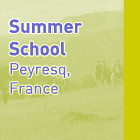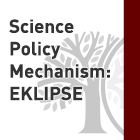MTA Ökologiai, Institute of Ecology and Botany, Hungarian Academy of Sciences (MTA OK)
|
|
Website |
Contacts
|
The Institute of Botany of the Hungarian Academy of Sciences (HAS) was established as part of a developing academic research network on the 2nd of January, 1952, in Vácrátót, in the castle park bequeathed by the Vigyázó family to the Academy, where its intellectual ancestor, the Nature Conservation Park and Biological Station of the Hungarian Natural History Museum operated earlier.
The mission of this new institute was to study botany in a modern approach, and accordingly, a botanical research open to practical problems and having an ecological approach from the beginning has risen. In 1954 the castle park was developed to a botanical garden. In 1977 the Danube Research Station of the HAS, which was founded in 1957 to satisfy international research engagements, was appended to the Institute as a department. With this act the scope of research areas in ecology were widened, according to which the name of the institute from 1984 on has been changed to Institute of Ecology and Botany of the HAS.
The current mission of the Institute is to study the different fields of ecology and botany both for basic and applied sciences at international standards, and to reveal, manage, develop and communicate knowledge in the above fields of science on Hungary's flora; the maintenance, development and exhibition of the Botanical Garden's collection, which forms part of our national heritage and property, established in the castle park bequeathed by Count Sándor Vigyázó to the HAS. Apart from the above mentioned tasks, the staff of the Institute actively participate in the gradual and postgradual professional and scientific education in co-operation with several universities / Eötvös Loránd University (ELTE), Szent István University (SZIE), University of Pécs (PTE), University of Debrecen (KLTE), University of Horticulture and Food Industry (KÉE).
Recent Publications:
- Szigeti V, Kőrösi Á, Harnos A, Kis J (online first): Lifelong foraging and individual specialisation are influenced by temporal changes of resource availability Oikos (early view) More ››
- Fekete I., Lajtha K., Kotroczó Zs., Várbíró G., Varga Cs., Tóth J. A., I Demeter I., Veperdi G. and Berki, I. (in press): Long term effects of climate change on carbon storage and tree species composition in a dry deciduous forest Global Change Biology More ››
- Biró, M., Molnár, Z., Babai, D., Dénes, A., Fehér, A., Barta, S., Sáfián., L., Szabados, K., Kiš, A., Demeter, L., Öllerer, K. (2019): Reviewing historical traditional knowledge for innovative conservation management: A re-evaluation of wetland grazing Science of the Total Environment, https://doi.org/10.1016/j.scitotenv.2019.02.292 More ››








